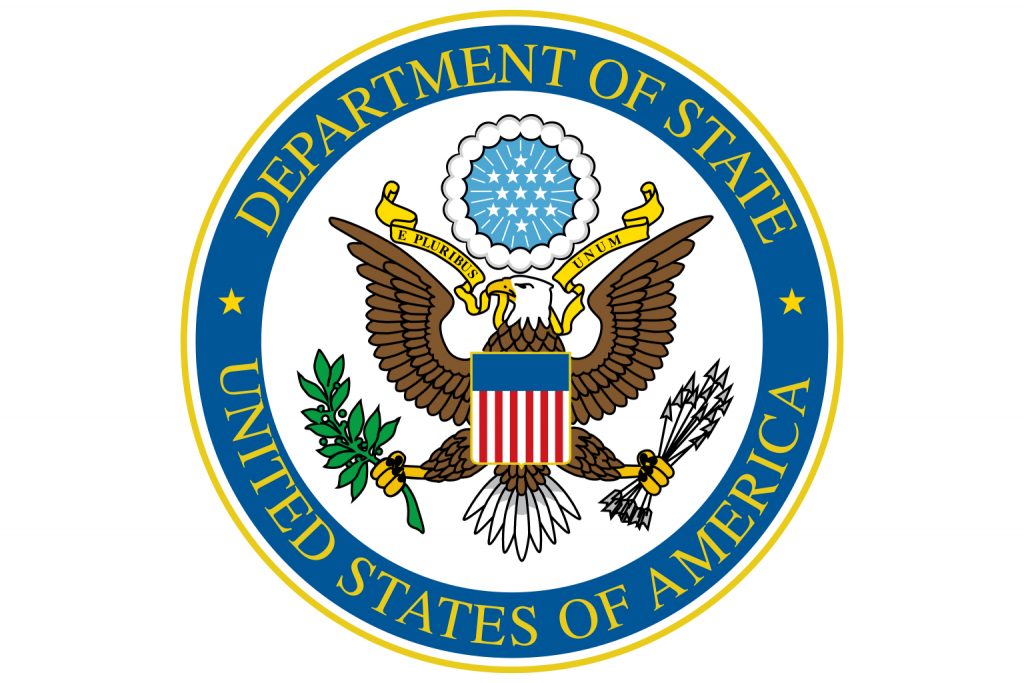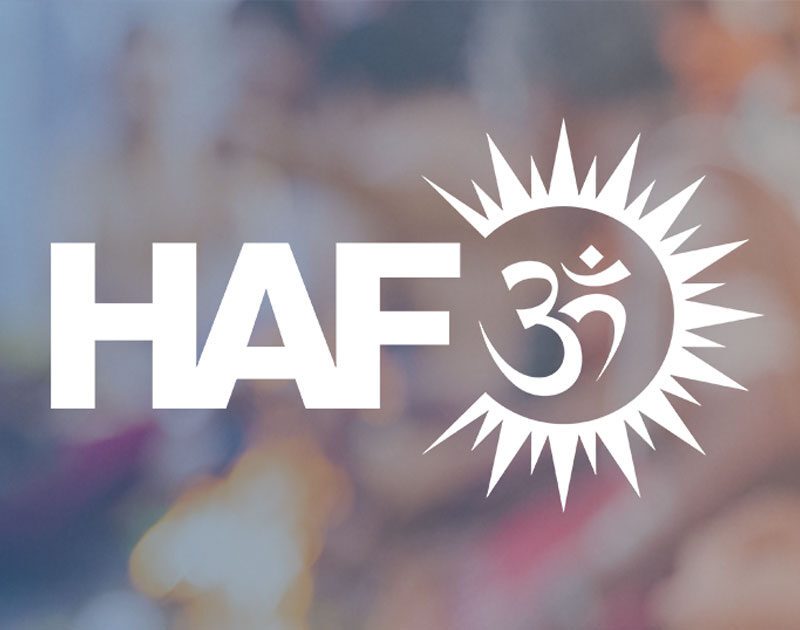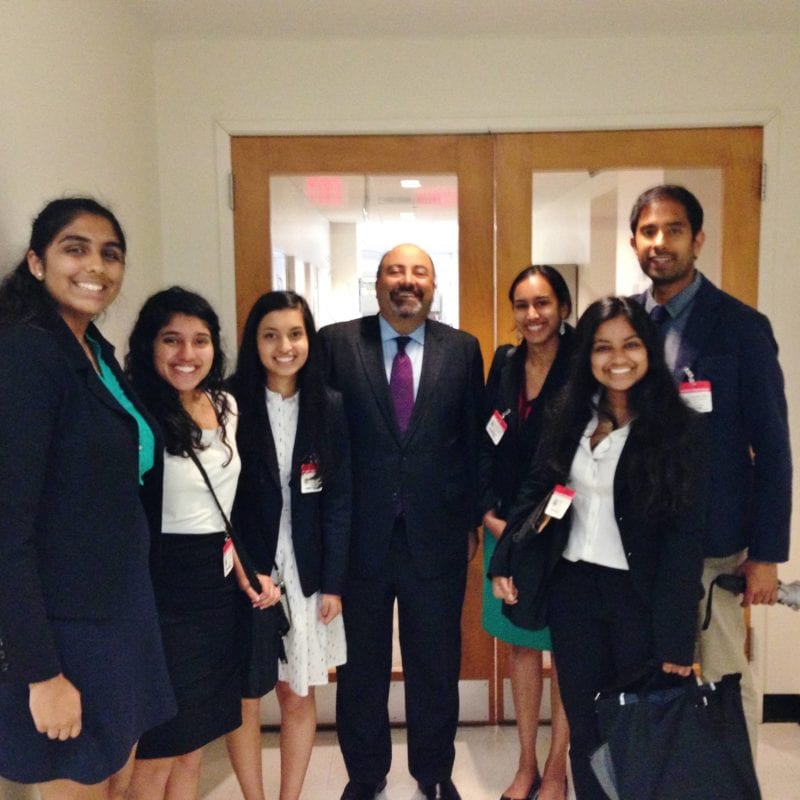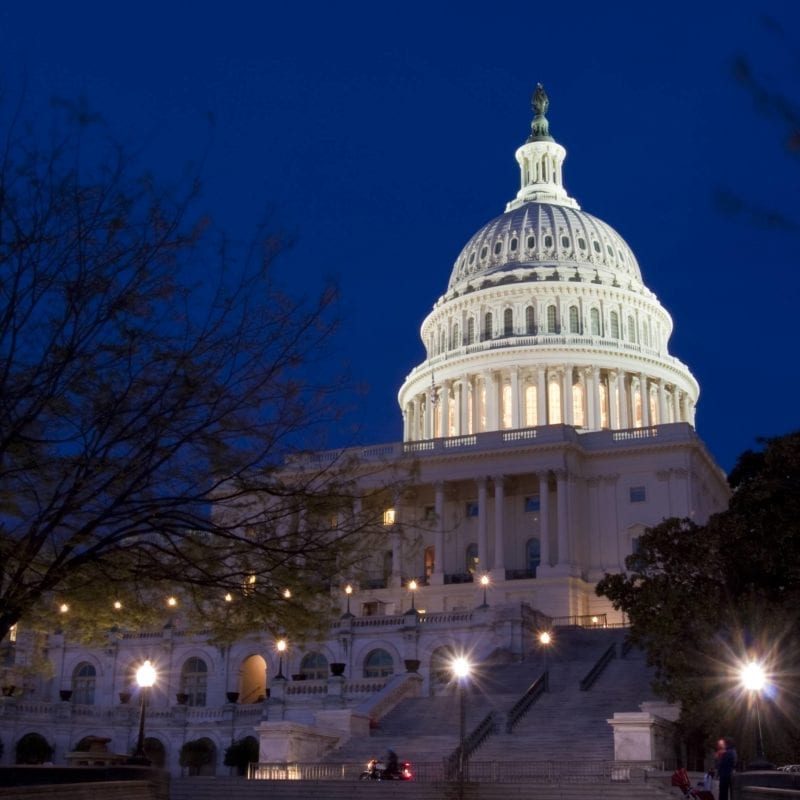
The following post is by Shailejaya Shukla, whose internship at the US State Department this past summer was supported by a grant from the Hindu American Foundation.
I was sitting in the cafeteria of what would eventually become my middle school at a Cub Scout pack meeting when I said, for the first time, that I wanted to become an ambassador. All the kids in my Cub Scout pack had said things like “I want to be an astronaut; I’ll be movie star one day,” or “I am going to play for the Yankees.” I knew that mom and dad wanted me to become an engineer or a doctor but I needed to say something that felt more natural to me, something that wasn’t a stereotype, something that showed my drive to help people.
The only Hindu-American scout wanted to show that his career would be something that no one sees as a typical Indian job. Those stereotypes that I held were soon washed away.
Over the last 20 years the Indian diaspora slowly but surely broke into every field. We have now actors, politicians, and athletes each becoming separate role models for kids who are now growing up in diverse neighborhoods and communities across America. Some have even become ambassadors.
This summer I had an opportunity to think about that moment many years ago and laugh. After my first year in engineering school I became a US Foreign Service Officer, albeit for a summer.
Growing up Hindu my parents had instilled the notion that performing seva was an important and necessary part of our Hindu identity. Both of my parents were adamant about joining the Boy Scouts as they saw it as a way to perform community service and was complementary to our own ethical beliefs. By the time I was a sophomore in high school, having become proficient in the martial arts, I knew that teaching at a free martial arts class would be the right way to give back to those who taught me.
In retrospect, it was clear that my parents were trying to show me that street blocks can only become communities if people make it a point of engaging with each other and spend time working on projects to give meaning to social life.
It was this idea of service that has led me to think of government service as something of value and a place where one can genuinely help people and help make our communities and country more effective for the lives of everyday citizens.
I applied to a number of government internships, among which was the economic unit internship at the INSB desk (India, Nepal, Bhutan, Sri Lanka, Maldives and Bangladesh) at the State Department. It was the perfect place where I could fuse my core belief of serving my country with my own interests in economics, trade, and geopolitics.
From the moment I sat down at my desk at the State Department, I was treated as a foreign service officer. My supervisor said, “In this internship you are going to do real work, its not going to be one where you make coffee all day.”
The unit let me grow into my job and gave me tremendous support. As soon as I was able to perform, they gave me more responsibility and allowed me to work on issues of real significance. I worked on economic issues involving each of the INSB countries, talked to American companies that had stakes in Asia, helped facilitate bilateral trade and education initiatives, and supported areas of strategic importance to the US — all of which lead to a rewarding experience.
One of the most important take aways of the summer was understanding the real challenges of managing foreign policy.
The United States is working through several tough battles right now. In the news we can see stories on Russian election meddling, a trade war going on in China, and the US lifting India’s GSP preference (which happened my first week at State).
The diplomatic core of America work tirelessly on these issues, trying to strike a balance between what is in the best interest of the US while still trying to help foster a strong and productive long term relationship with each country.
India, for instance, is now considered one of America’s most important allies. This was clearly demonstrated by the regard shown by the American President for Prime Minister Nerendra Modi. However, even with this relationship, the United States still holds India, and by extension Prime Minister Modi, to the same standard with which we treat all of our partners.
Of particular contention has been the issue of tariffs, where India is charging American goods a tariff considerably higher than what the US is charging on Indian goods. The President has been vocal about this issue and expressed several times that it needs to change.
It was interesting to observe the great balancing act that foreign service officers must go through when negotiating with other countries. While as Americans we are always going to put our country’s goals ahead of others, it was still an important consideration in the discussion as to how the United States can support the long term aspirations of foreign nations.
While there are hiccups when negotiating with other countries, it was clear from working with foreign service officers that the US is trying to engage positively across the world. With India the United States shares a deepening partnership in higher education. Every year tens of thousands of students travel from India to get a quality education in the States. This trade in education not only provides an excellent schooling for those that come here, but it also gives American students the opportunity to engage with and gain insights from students with a very different set of thought patterns and experience.
One of my assignments was to attend the Ideas Summit that US-India Business Council hosted during the summer. Here I was given the privilege of watching Secretary Pompeo, Secretary Ross, Ambassador Shringla, and Sundar Pichai speak. It was amazing to see the commitment everyone had to seeing a thriving and deepening strategic relationship between the two countries.
One thing that surprised me throughout my experience this summer was how central foreign service officers are to helping craft and facilitate United States foreign policy. Everyone associated with a country helps in bringing together what the United States views as its policy prescription towards another nation. This broad engagement within the State Department and with other concerned US Departments truly allows a diversity of thought to be constructed with respect to foreign policy. As no one person is able to track every complex aspect of a relationship like the one between the United States and India the system allows for distribution of responsibility and places a great deal of trust in the foreign service officers working on those issues.
As a Hindu-American I found that the perspective I brought to policy meetings was something different and would have been missed if I wasn’t sitting at the table.
Having grown up in a household of immigrants from the India I had an easier time understanding the nuances of the Indian position and tried to convey them and attempted to improve the quality of the discussion.
Being a Hindu informed another element of my work this summer more centrally.
Hinduism ethically concerns itself with harmony and good stewardship — where we should not exploit nature more than we need and where humans have rights but so does the rest of nature.
I was fortunate to have been given the opportunity to raise concerns on climate policy, especially air quality, with people at the Department of Commerce, Energy, NASA, and foreign government officials.
The State Department regards responding to climate change as fundamentally important and is encouraging discussion in spaces that would not necessarily have historically considered climate challenges especially with respect to its implications with regard to communities here in the US and other parts of the world.
The summer felt surreal as the job made use of my training as an engineer, a volunteer, and a teacher and allowed me to engage with others with different experiences to shape and further in a very small way, American foreign policy. To be able to do so in an internship, which was way more than an internship, at a Department which I had dreamed of joining since I was a child, was a wonderful experience. I encourage anyone interested to try and experience it.
By working on issues of foreign policy we help bring peace to a fractured world, step by step. What could be more American or Hindu?








































